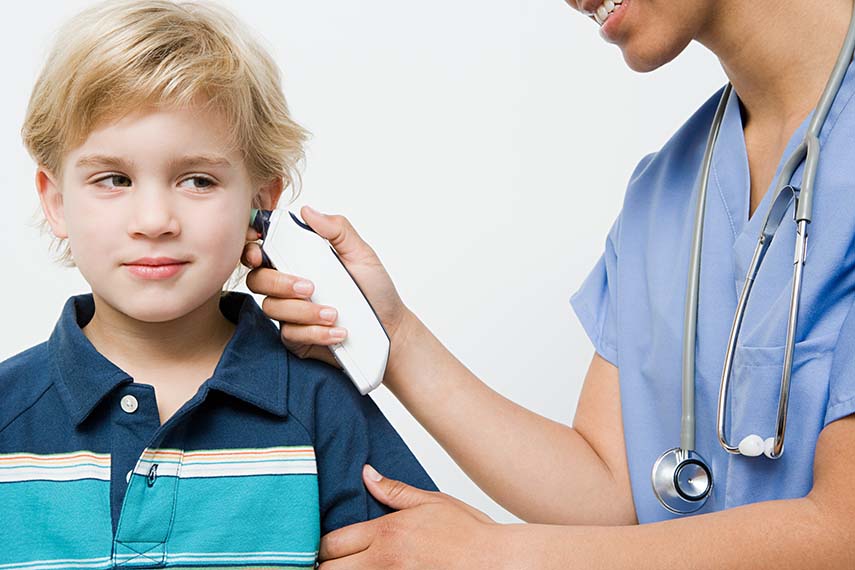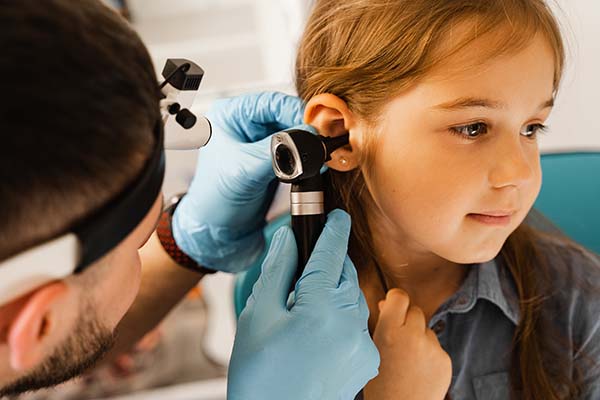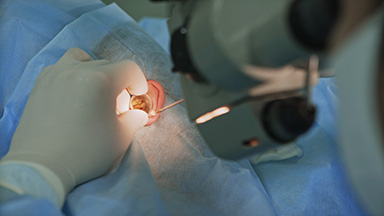Useful Guide: Everything You Need To Know About Paediatric ENT
Paediatricians are doctors who specialise in taking care of children. And if you have a kid, chances are, you’ve already had trips down to a paediatrician before. But sometimes, you might need to zone in a little bit more – especially when your child’s health issue involves their ear, nose, or throat. And if the regular paediatrician is just not cutting it, maybe it’s time for a paediatric ENT specialist.
And that’s what we’ll talk about in this guide. We’ll cover:
- What a paediatric ENT is
- What a paediatric ENT does
- What problems do they treat
- When to consider visiting one
- And things to keep in mind when visiting them
Let’s get started.
What Is A Paediatric ENT
Paediatric ENT or Otolaryngology specializes in diagnosing, preventing, and treating conditions that affect children’s ears, nose, and throat. Paediatric ENT (ear, nose, and throat) care is crucial for children because it covers major issues that almost uniquely affect children.
Around 75% of children will have at least one ear infection by three. The problems could range from mild concerns to serious issues that require medical treatment or surgery. Paediatric ENT specialists cater to these complications to ensure the health of children.
Why Are ENT Problems So Common In Children?
It’s perfectly normal for children to get sick. It’s a part of growing up. But have you ever wondered why your child gets sick so often? Here are a few of the many reasons behind that:
- Your children are more prone to ENT complications as their body parts aren’t yet completely developed. Their underdeveloped immune system is susceptible to viruses and bacteria
- The primitive shape and size of the Eustachian tubes (a small passageway connecting your throat to your middle ear) make the children of 6 months to 2 years of age the most sensitive to ear infections
- Your child is constantly meeting new people. As a result, they’re more vulnerable to infections as they have more exposure to bacteria and viruses
On top of that, a variety of other reasons like feeding bottled milk to kids lying in bed, using pacifiers, having exposure to cigarette smoke, or simply a history of infections in the family.
Many of these lead to ENT complications.
Common ENT Problems In Children
Children can have an almost endless list of diseases or complications. The delicate bodies of growing children need special attention. Genetics or simply luck are the main factors behind these disorders. ENT specialists have the expertise and training needed to treat and care for these conditions. Here are some of the most common problems children suffer from:
Ankyloglossia (Tongue-tie)
Ankyloglossia – commonly known as Tongue-tie – is a condition where an unusually short, thick, or tight band of tissue (lingual frenulum) attaches the bottom of the tongue’s tip to the floor of the mouth.
As a result, a child can’t move their tongue properly and has pronunciation issues. If necessary, Ankyloglossia can be treated with a surgical cut.
Acute Otitis Externa (Swimmer’s Ear)
Acute Otitis Externa is when an infection, inflammation, or irritation in the outer ear and ear canal runs from your eardrum to the outside of your head. It’s often caused by water that remains in your ear, creating a moist environment that becomes a habitat for bacteria – hence getting the popular nickname – swimmer’s ear.
Acute Otitis Media
Acute Otitis Media or middle ear infection happens when upper respiratory tract infections (basically when you feed the kid while they’re lying down and as a result of it, some liquids reach the ear) track up the Eustachian tube and infect the middle ear.
Symptoms include pain, fever, and hearing loss. Sometimes, the pus will burst through the eardrum and release as ear discharge.
Tonsillitis
Tonsillitis is when the pharyngeal tonsils (located in the back of the throat) are visible through the mouth because of inflation. Signs and symptoms include swollen tonsils, sore throat, difficulty swallowing, and tender lymph nodes on the sides of the neck.
If left untreated, this can cause complications like scarlet fever, middle ear infections, and occasionally, rheumatic fever. Surgery might be necessary.
Sinusitis
Sinusitis is an inflammation or swelling of the tissue lining the nasal sinuses. Unlike adults, symptoms of children’s sinusitis include having a cough, bad breath, low energy, and swelling around the eyes, along with a thick yellow-green nasal drip. Untreated chronic sinusitis can lead to nasal polyps, a deviated septum, and serious allergies.
Hearing Loss
As the name suggests, hearing loss is a problem where children’s ability to detect sounds reduces. It can affect one or both ears and range from mild to serious. Even mild hearing loss interferes enough to disrupt a child’s proper speech and language development.
Paediatric Sleep-Disordered Breathing (SDB)
Paediatric sleep-disordered breathing, or SDB for short, is generally used for breathing difficulties during sleep. This can range from frequent to loud snoring to Apnoea – a condition where the airway is repeatedly blocked during sleeping – which causes increased heart rates, blood pressure rises, brain arousals, and sleep disruptions. Oxygen levels drop as well.
Airway Disorder
Airway disorders are disorders of the larynx (voice box) or trachea (windpipe). It can affect children’s ability to breathe, eat, and swallow normally. These airway disorders may be diagnosed before birth or develop over time due to an infection or traumatic injury. Reconstruction surgery might be required to rebuild or expand parts of the airway.
Feeding And Swallowing Issues
Many children struggle to swallow not just solid foods. But liquids, medications, and even their own saliva. These usually happen because of obstructions or irritations in the throat and mouth.
Some Common Procedures Of ENT Specialists
ENT specialists routinely do such operations on patients.
Some of those treatments include:
- Tonsillectomy: The procedure of removing detrimental tonsils
- Adenoidectomy: The procedure of removing too large, infected adenoids
- Insertion of grommets: Implantation of grommets (small tubes) in the eardrum to treat middle ear effusions (glue ears)
- Septoplasty: Fixing the nasal septum to resolve the blockage in the airways
- Oesophagoscope: Viewing, observation, or examination of the oesophagus with the help of a flexible tube inserted through the mouth
- Tracheostomy: Insertion of a tube into the Trachea (Windpipe) to help in breathing
- Endoscopic Sinus Surgery: The procedure of advancing a tiny telescope into the nasal passages to diagnose and treat sinus conditions. Instruments are then used or placed to get things back to normal
- Micro laryngoscopy: This procedure involves a laryngoscope (a short metal tube) that’s placed through the mouth to perform a surgery or biopsy
- Open operations: For the removal of neck lumps and salivary gland tumours
What Other Subspecialties Does Paediatric ENT Include?
Paediatric ENT also has many subspecialties. A sub-specialist is more proficient in a certain field than normal specialists. Paediatric ENT specialties include
- Rhinology: This subspeciality is devoted to the anatomy, physiology, and diseases of the nose and the paranasal sinuses
- Laryngology: These subspecialists focus on the larynx or the voice box
- Audiology: They specialize in hearing, balance, and related disorders and deal with hearing loss and deafness
- Otoneurology: It focuses on medical conditions associated with the nervous system. They treat Meniere’s disease, vertigo, otosclerosis, and other balance-related issues, as well as secondary hearing loss or chronic ear infections
When To Take Your Child To See An ENT Specialist
Your child is acting weird. It’s time to visit the doctor. But, this is where it gets confusing. A paediatrician cares for many conditions that a paediatric ENT specialist cares for too. This overlap causes distress for parents. So, these are the symptoms where you should take your child to a paediatric ENT specialist rather than a paediatrician.
Ear Infections
Young children suffer from ear infections a lot. It’s one of the most common reasons parents visit doctors. Many children will get otitis media before they reach the age of three. It’s normal if it happens once.
But you should consult with a paediatric ENT specialist if:
- Your child has more than 4 infections per year
- Ruptures their eardrum during an infection
- Your child has had persistent fluid in their ears for more than 3 months
- Your ear infected child has a speech delay
- Your child reacts negatively to taking medication – such as allergies, severe diarrhoea, vomiting, etc.
Other Infections
Aside from ear infections, other infections might also require consultation with an ENT.
Like:
- Multiple sinus infections within a year
- Recurrent tonsilitis
- Frequent sore throats
Sinus problems are common in children, and seeing a paediatrician is a good first step. However, if it begins disrupting your child’s quality of life, it may be time to visit an ENT specialist.
Snoring
Many parents find snoring cute, but that’s not the case. Frequent snoring is not healthy for your child. It disrupts their quality of sleep with frequent awakenings.
Certain conditions, like sleep apnoea, can lead to various health issues – including facial bone malformation, behaviour issues, and even bed-wetting. An evaluation of their airway is recommended, so visit an ENT specialist.
Nosebleeds
It’s normal for nosebleeds to happen if children are hit on the nose. But regular nosebleeds without any incidents causing them are different. A paediatrician is alright for initial treatments, but if it continues to be significant bleeding, you should consult with an ENT physician.
Lumps Or Masses
Lumps or masses in a child can be quite anxiety-inducing. Oftentimes these are just lymph nodes helping fight infection.
However, you should visit an ENT specialist if:
- The neck mass is progressively growing
- The growth comes with skin discolouration
- Your child was born with it
Ask Yourself These 3 Questions
Children get sick all the time. They meet new people, eat dirt, lick the floor, and so on. So how to tell if it’s serious and not just a common cold.
Well, asking yourself these three questions might help:
1. Is It Recurring?
Does the problem resolve only to come back the next month? If your child keeps having issues with their ears – such as an ear infection that keeps returning – or a sinus infection
2. Is it Chronic?
Can you remember the last time your child didn’t have a cold or ear pain? The problem with chronic issues is that it’s rarely resolved. You’ll always see your child with a persistent cough, runny nose, nasal congestion, or any other issues with their ears, nose, or throat that’s just never gone
3. Is It Affecting Your Child’s Quality Of Life?
Is your child always sneezing, coughing, and drowsy to the point that he’s missing school regularly, or are others also beginning to notice it? Then maybe you should set up an appointment
What Can I Expect During Our First Appointment
When you visit an ENT specialist the first time, like every other doctor, they’ll take a complete medical history of your child. They’ll want to know when the symptoms started, what medications your child has previously taken, and what he’s currently using. Also, if there are any other health problems of your child. It’ll help to note the information and take the necessary reports, so you don’t forget to mention anything important.
Then the doctor will probably perform a physical or visual examination, including looking into your child’s ears, nose, and throat. And there may be some hearing tests to check the condition of your child’s hearing.
The ENT examination may feel overwhelming to the child because of the instruments used to peer, poke and prod.
How To Prepare Your Child?
Sure, you might be prepared, but have you prepared your child? Although paediatric ENT specialists are experts at making toddlers feel at ease, preparing your little kid for their check-up (and knowing what to expect yourself) can make everyone’s visit a breeze.
Let’s look at what to do before going to a children’s ENT appointment to make the most out of it.
Tell Your Kid What Might Be There
You don’t need to use jargon like “paediatric ENT doctors” or “otoscope.” But you can assure your little one by saying she will see a new doctor who’s going to make her feel better.
Then familiarize them with the stuff the doctor might do – like look into the ears with a small torchlight, asking her to open her mouth wide as she does at the dentist’s, sneaking a peek up her nostrils. These will make sure your child stays calm during the visit.
Practice Sitting Still
Suppose your daughter’s ears have been bugging her for a while. So, if the doctor touches the sore area, your child will want to flinch. Remind her that a doctor’s job is to help them feel better. Tell her that they can help if they can sit still and do what the doctor tells them.
You can arrange a demo of the doctor’s visit by dressing yourselves up. Place her on a chair or your lap and see if she stays still while you try to touch the outer region of her ears. Why not play pretend and show them what an ideal patient should be like.
Tell Them To Be Open With The Doctor
Your first visit to an ENT specialist may take a while. The paediatrician does not get started right away. More like, they can’t. They first need to earn the trust of your child. And little kids take some time to warm up to strangers, especially strangers in a new environment.
So instruct your child to be open with the doctor. To hold nothing back. But also remember – it might take a while before your little guy starts opening up.
Give Your Child The Permission To Speak Up
During the visit, don’t hesitate to ask questions. Let your kid know that they can ask any question they want. The more response you get, the better you will be able to take care of your sick child. After the diagnosis, the doctor will suggest a course of action. Be sure to listen and understand the instructions, and take notes if necessary.
Closing Thoughts
So, there you have it. Everything you need to know about Paediatric ENT.
So the next time you need professional medical help for your child, ask yourself – does this problem require a plain paediatrician or a paediatric ENT specialist?
If the answer is the latter, then go ahead and book an appointment, prepare yourself and your child mentally and let the expert take the wheel.
- About the Author
- Latest Posts
Dr Ronald Chin is an Australian trained Otolaryngologist Head and Neck Surgeon.
After graduating as a Fellow of the Royal Australasian College of Surgeons, Dr Chin undertook further specialised training in Head and Neck Cancer at the Royal College of Surgeons in Ireland.
He has published many research papers and is an active teacher and scholar.
As part of his subspecialty training, Dr Chin has training in Laser, Da Vinci Robotic, Flex Robotic and complex surgical techniques.
In addition to specialised Head and Neck Cancer, Dr Chin also enjoys general adult and paediatric ENT Surgery and practices sinus, snoring/sleep and general paediatric ENT Surgical procedures.
Dr Ronald Chin works as a general Otolaryngologist, offering a wide range of surgical and non-surgical treatments including ear surgery, nose surgery and throat surgery. He provides treatment for chronic conditions such as tonsillitis, sinus problems and problems with hearing.
He is also involved in the diagnosis and treatment of many conditions such as facial paralysis, head and neck cancer and sleep apnea. As well as performing surgery on children, he also provides specialist care for adults, including the treatment of throat disorders, voice loss and ear problems.
Dr Chin has also served as a Conjoint Associate Professor at the University of Sydney, a Conjoint Associate Professor at Western Sydney University and an Adjunct Associate Professor at the University of Technology Sydney.








